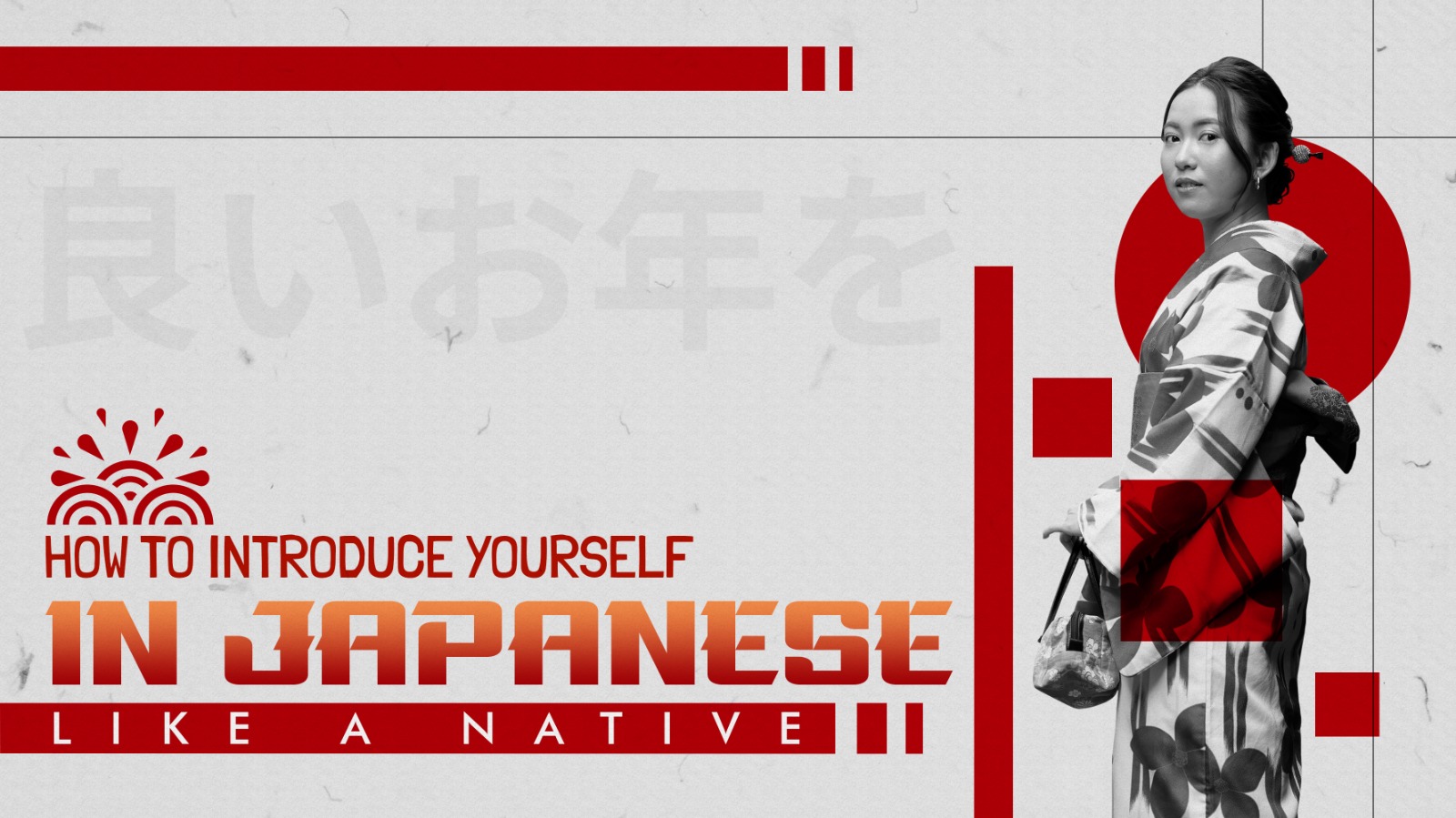
How to Introduce Yourself in Japanese Like a Native
It started with a bow.
Not the dramatic anime kind, but an awkward, 45-degree bend in a Tokyo classroom that made me feel like a folding chair. I had just arrived in Japan for a language immersion program. The room was silent. Twenty expectant faces stared at me.
“Uh… watashi wa…” I fumbled, blanking out as the teacher smiled encouragingly. I knew the words, but nothing sounded right. I felt like a tourist reading off Google Translate.
Then it hit me—introducing yourself in Japanese isn't just about words. It's about presence, politeness, rhythm, and reading the room. It’s not just what you say, but how you say it.
That moment sparked a journey. And today, I’m sharing everything I wish I’d known.
First Things First: The Cultural Context
In Japan, introductions are a ritual. They set the tone for relationships, show respect, and help everyone find their place in the social hierarchy. It’s less about “me” and more about fitting into the group dynamic.
Think of it like this:
In English, we might say “Nice to meet you!” with a handshake.
In Japan, it’s more like saying, “I’m honored to be part of this space.”
So let’s learn how to do it right.
The Basic Self-Introduction Formula (Jikoshoukai / 自己紹介)
Here’s a native-style self-intro in Japanese broken down:
はじめまして。田中美咲と申します。インドから参りました。よろしくお願いいたします。
Translation:
“Nice to meet you. My name is Misaki Tanaka. I’ve come from India. I look forward to working with you / knowing you.”
Breakdown:
-
はじめまして (Hajimemashite) – “Nice to meet you”
Literally, “This is the first time we’re meeting.” Use this only once when you meet someone for the first time. -
[Name] と申します (… to moushimasu) – “My name is…”
More formal than desu. Use moushimasu in business/formal settings to sound native-level polite. -
[Country/City] から参りました (… kara mairimashita) – “I’ve come from…”
Another formal phrase that sounds elegant and humble. -
よろしくお願いいたします (Yoroshiku onegai itashimasu)
A magical phrase meaning: “I’m in your care,” “Let’s work well together,” or “Thanks in advance.” It’s untranslatable—but crucial.
Creative Additions That Make You Sound Native
Once you’ve mastered the basics, add a personal touch to stand out without sounding too casual.
-
Hobby Mention
趣味は映画鑑賞です。
(Shumi wa eiga kanshō desu. – My hobby is watching movies.) -
Why You’re Here
日本文化に興味があって、勉強しに来ました。
(Nihon bunka ni kyōmi ga atte, benkyō shi ni kimashita. – I’m interested in Japanese culture, so I came to study.) -
Fun Fact
実は、少しだけ日本のアニメで日本語を学びました!
(Jitsu wa, sukoshi dake nihon no anime de nihongo o manabimashita! – Fun fact, I learned a bit of Japanese from anime!)
These touches make you memorable while still showing cultural respect.
Formal vs. Casual: Know Your Audience
|
Setting |
Name Phrase |
Ending Phrase |
|
Business/Professional |
〇〇と申します |
よろしくお願いいたします |
|
Friends/Social |
〇〇です |
よろしくお願いします/よろしくね |
|
Online/Instagram Bio |
〇〇です/だよ! |
よろしく〜 |
Body Language: Say It With More Than Words
-
Bowing – A slight bow when introducing yourself shows respect.
-
Eye contact – Gentle and brief, not intense.
-
Posture – Stand straight, hands by your sides or lightly clasped.
Real-World Script Examples
Formal Work Setting
はじめまして。田中と申します。マーケティング担当としてインドから参りました。どうぞよろしくお願いいたします。
Casual Friend Group
はじめまして!ミサキです。映画が好きで、最近はジブリばっかり観てます。よろしくね!
Language Exchange Meetup
こんにちは!ミサキです。英語と日本語を一緒に練習したいです。仲良くしてください〜!
Pro Tips to Sound More Natural
-
Slow down. Speak with intentional pauses—Japanese is rhythm-based.
-
Listen more than you speak. Match your energy to the group.
-
Repeat others’ names – It shows attention and helps you remember them.
-
Practice in front of a mirror – Body language counts as much as words.
-
Record yourself – Playback helps with tone and pace.
Final Words: It’s Not About Perfection, But Presence
The Japanese self-introduction isn’t a performance. It’s a gesture of humility, curiosity, and willingness to connect. Mastering it isn’t about fluency—it’s about intention. And that, truly, is what makes you sound like a native.
So, next time you say はじめまして, say it with heart.
Ready to introduce yourself like a native?
Join the Langauge SKOOL today and learn Japanese from the comfort of your home.











